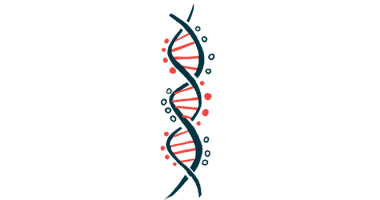Zafgen Suspends Plan to Initiate ZGN-1258 Program as Treatment for PWS

Preclinical studies on the long-term impact of the investigational therapy ZGN-1258, being developed as a potential therapy for Prader-Willi syndrome (PWS), revealed alarming toxicity events and safety issues, Zafgen, the therapy’s developer, has announced.
Based on these negative results, the company has changed its plans for ZGN-1258, and is not going to seek regulatory approval to advance it into clinical trials for now.
Zafgen plans to conduct additional analyses to further assess the newly reported unexpected toxicity effects. The company will provide an update at a later date, if warranted, following completion of these evaluations.
“Our mission at Zafgen to develop safe, effective and potentially transformative treatment options to patients who could benefit centers on applying the highest scientific rigor to our development efforts and letting the data lead us,” Jeffrey Hatfield, CEO of Zafgen, said in a press release. “We are, of course, extremely disappointed to suspend our investigational new drug filing plans for ZGN-1258.”
ZGN-1258 was designed to change the way the body uses fat molecules, reducing fat mass and controlling the urge to eat excessively (hyperphagia) associated with PWS. The therapy selectively inhibits MetAP2, a factor playing a central role in metabolic disorders.
Preclinical studies showed that ZGN-1258 could induce significant weight loss in obese mice by acting on adipose tissue and hunger control centers.
Despite these positive results, the most recent data revealed that four to six months of treatment with the investigational therapy promoted degeneration and other anomalies in muscle tissue from rats. These adverse effects were seen in both the ZGN-1258- and placebo-treated groups to different degrees.
This was the first time such toxicity events were reported with Zafgen’s MetAP2 inhibitor, and have not been seen in other rodent studies or in long-term studies with other animal species. Given so, researchers believe this effect is specific to ZGN-1258.
“We proactively initiated long-term toxicology studies prior to filing an [investigational new drug] filing, and that decision now allows us to take the necessary steps to assess the unexpected effects we observed,” Hatfield said.
“The entire team at Zafgen is driven by a deep commitment to people with PWS and their families, and we’ll continue to evaluate ZGN-1258, as well as explore other potential options within our portfolio of MetAP2 inhibitors, to address the devastating hyperphagia experienced by those with PWS,” he said.
Regardless of the ZGN-1258 setback, Zafgen will continue the natural history study that was launched in July 2018, called “PATH for PWS” (NCT03718416).
Being conducted in collaboration with the nonprofit Foundation for Prader-Willi Research (FPWR) and the National Organization for Rare Disorders (NORD), this trial aims at advancing the understanding of the medical history and medical events in patients with PWS. The non-interventional study was planned to enroll 500 PWS patients, and as of March 2019 it had more than 400 participants. Patients and caregivers interested in participating in the study can register at the Global PWS Registry.






